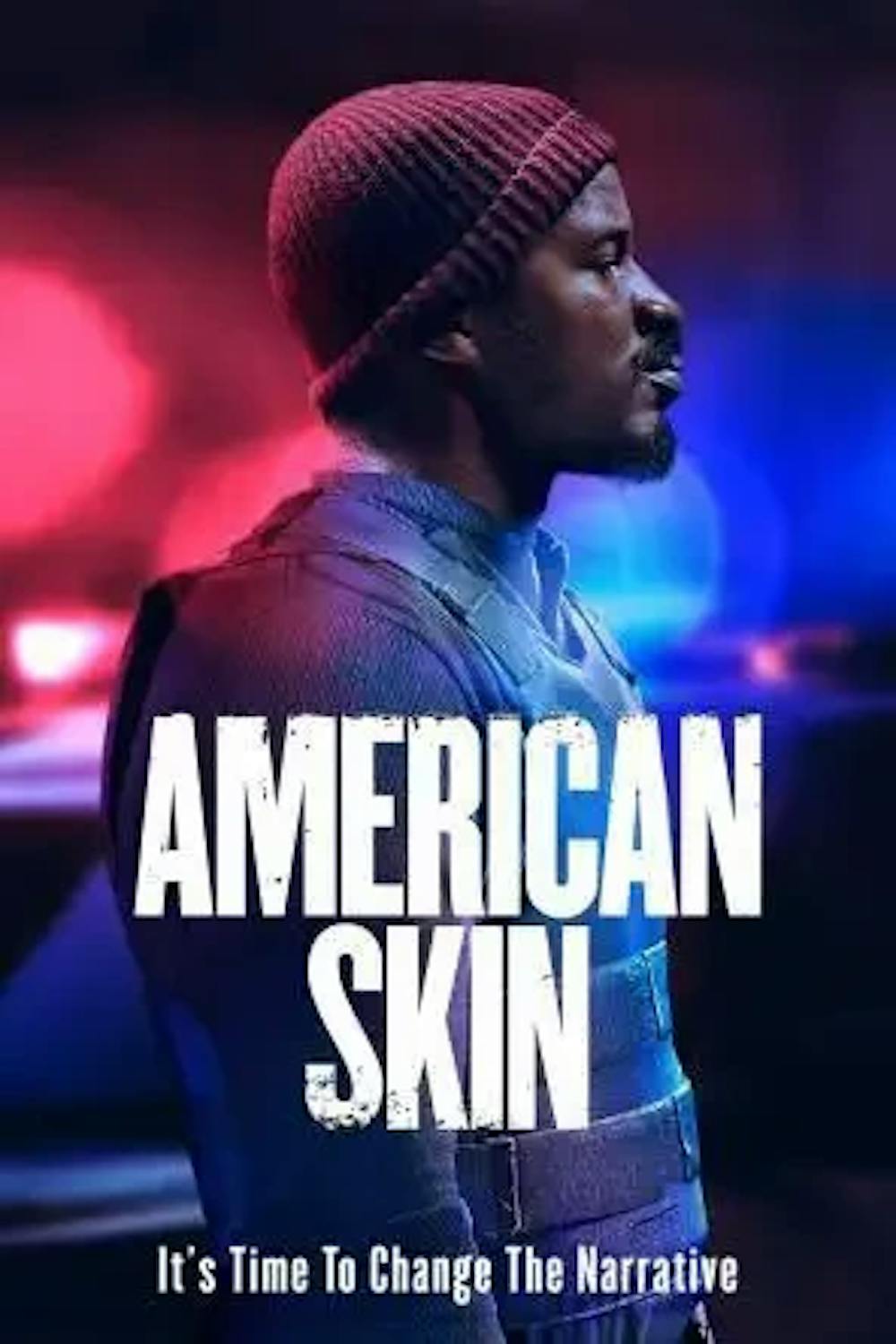The release of the movie American Skin comes at a monumental time in America due to the uprising of the Black community following the deaths of George Floyd, Ahmed Arbery, and Breonna Taylor. It was almost as if the resurrection of Civil Rights Movements was revived this summer as cities across America were filled with Black Lives Matter protests.
American Skin delves into the complexities of police brutality and race relations in the United States. This film, despite having ties to current discussions on police brutality in the U.S, was initially released at a film festival in 2019. When you consider the 2019 release nearly two years ago, American Skin is a climatic film that further highlights the fact that such discussions of police brutality and racism are not new conversations to the American public.
This film follows the story of a marine veteran and father, Lincoln Jefferson, whose 14-year-old son, Kajani Jefferson, is killed in front of him at a traffic stop by a white officer. The movie's point of view is fast-forwarded to a year later when a college filmmaker, Jordin, begins working on a documentary on the story of Kajani’s death.
Throughout the movie, the audience’s perspective is shown through the point of view of the college filmmakers interviewing the friends and family of Kajani Jefferson. The goal is to seek justice for the slain teenager. To help viewers understand how the family is grieving, the ties Lincoln Jefferson’s family has to the Marines and the military are highlighted. Their grief is not outward emotion but rather the family is pictured grieving in a very stern way. Their emotions appear controlled, and the viewer comes to understand that perhaps military training for difficult and adverse situations in life has influenced their reactions here. Soldiers are not known for crying or being sad, rather they are stone-faced and emotionless. As the film continues and the audience is given a greater look into each character, the idea is pushed across that Kajani’s family is willing to sacrifice themselves for the people they love, much like the military is trained to sacrifice for the country.
The film displays evidence of dashcam videos and home videos giving the audience a greater portrayal of who Kajani Jefferson was and how his death occurred. American Skin switches back and forth between the current time and past videos and by switching the perspective back and forth, the audience is given a greater look into Kajani's personality. The devastation of the family is highlighted even further through reflection and examination of their past conversations before his death.
As the movie continues to follow the student-created documentary on Kajani’s life, death and family, the final verdict ruled by the court decision regarding Kajain’s death forces Lincoln Jefferson to take justice into his own hands. To seek out revenge and due process for his son, this leads to an arising hostage situation, captured in real-time by the college filmmakers recording the entire situation. This could be seen as a metaphor for Black youth needing to document what is happening to their communities. As technology has advanced it has changed the visibility of police brutality and racism and how it is viewed in this country. Widely released videos on social media force people to watch what is happening to and within the Black community, and Black youth are at the forefront of opening people’s eyes to these injustices. As in prior movies, Director, Spike Lee, does not shy away from the harsh realities of racism and American Skin is no exception. A significant part of the film is dedicated to the themes of the impact of race in the courtroom and the constant search for justice when the legal system fails to uphold it.
The cast has stand-out actors who have played extraordinary roles in previous films such as Nate Parker (Birth Of A Nation), Sierra Capri (On My Block), Omari Harwick (Power), Shane Paul McGhie (After), and many more. In addition, this movie has been highly regarded by celebrities who have vocalized their stance on racism in America. In a tweet, well-known basketball player, Lebron James, discusses American Skin as a “Must Watch” movie.
Between discussions held between police officers and civilians alike, different perspectives on the issue of racism in the U.S. justice system are addressed. Systemic racism is a part of every institution in this country. Race is also a part of everyone’s lives, and for Black Americans, the negative repercussions of racism can be felt each day. Normal daily tasks for some people, such as driving home from work, can be deadly for Black Americans.
American Skin touches the core of the disconnect between the police and Black communities. In the U.S. there is an expectation that U.S. citizens should have trust in the criminal justice system. Black Americans have been constantly failed by the justice system, by being over-policed in Black neighborhoods and schools, as well as mass incarceration as just two indicators. One can see how there could be a disconnect between Black communities and the police. The underlying stereotypes of Black communities being dangerous in this country further fuel tension in this relationship on both sides. By holding police officers hostage, Lincoln Jefferson created a captive audience for an open discussion on racism and allowed him to fully express his outrage and even perhaps gain a sense of closure. American Skin is more than a must-see movie, it’s a reality check for America to wake up.



